One of the hardest things about winter is the severe lack of greenery. Snow may be pretty, but the naked trees and dismally bare garden beds are enough to bring anyone down! Luckily, bringing a little greenery back into your life during those gray winter months is very easy.
Fresh herbs can add color and pizzazz to almost any food dish, and they're a cinch to maintain! If you already have herbs growing in your garden and want to bring some inside for the winter, re-potting them is a great project. You can also start any herbs you desire from seed, just be prepared to wait a little bit longer to use them. Check out our full selection of herb seeds HERE.
Potted herbs require at the very least 4 HOURS of sunlight per day. Use a sunny south-facing window in your house for the best light, or supplement your plant's lighting needs with a grow light.
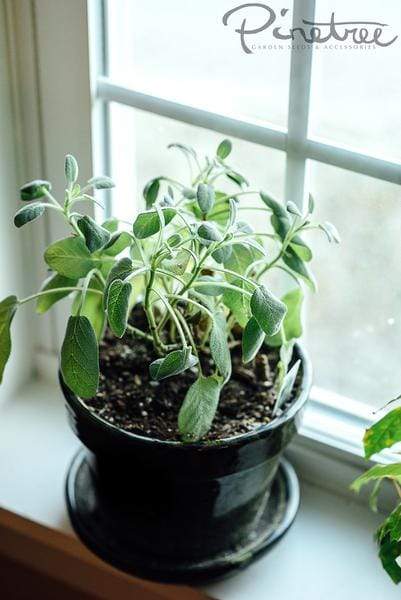
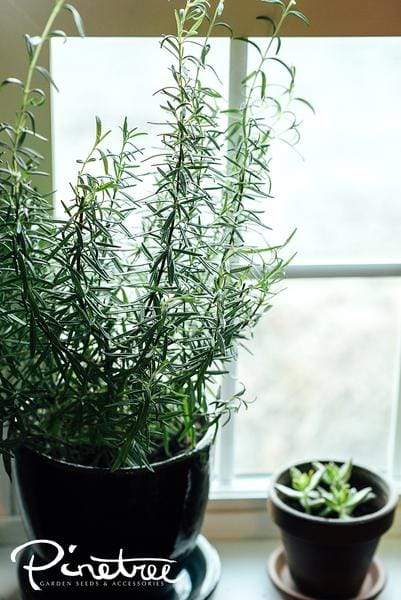
Herbs (and most potted plants in general) need good drainage. If the soil holds too much water, it can cause the roots of your plant to rot! Make sure the pot you use for your herb plant has a drainage hole at the bottom, and that you only water when the top 1/2-3/4 inch of soil is dry to the touch.
Be mindful of using clay pots, which tend to dry out quickly. Heat from a furnace during the winter can also dry plants out quicker, so be sure to keep an eye on your soil.
If you already have houseplants, it's best to quarantine any herbs brought in from the garden for a few weeks to avoid spreading pests or diseases. Feeding your herbs with liquid seaweed fertilizer in winter will give the plants a boost of nutrients.
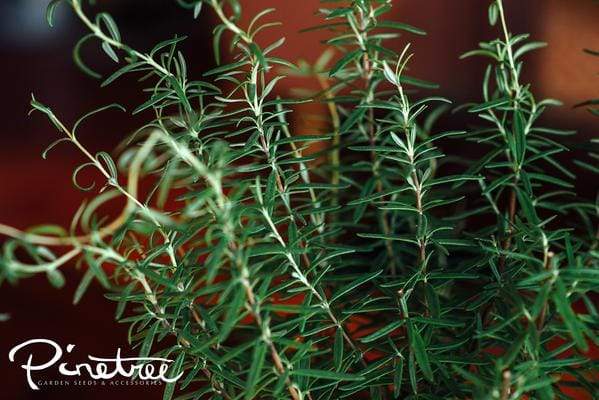
Rosemary, whose name means "dew of the sea" in Latin, has a fresh lemon-pine flavor that complements chicken, lamb, and pork dishes, as well as pizza. Harvest the desired amount of stalks for your use by cutting with scissors, and new growth will come directly from where you cut. Rosemary plants prefer bright light and cool temperatures. Make sure to harvest stalks regularly to prevent your plant from stretching and getting 'leggy'.
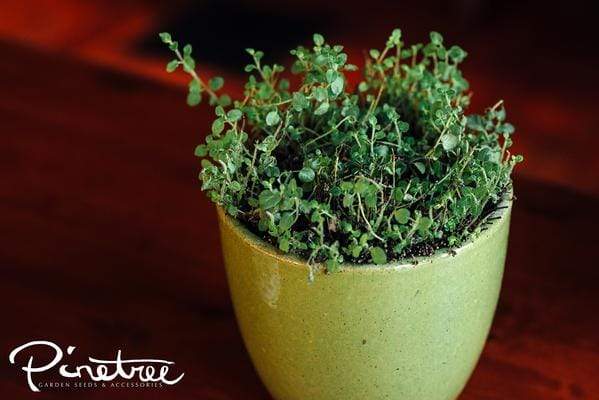
Oregano, whose name means "joy of the mountain" in Latin, has a zesty flavor that is often associated with Italian cooking. Use in a variety of Italian dishes, as well as on pizza. Allow your oregano to grow up to 4 inches in height before trimming, which encourages your plant to grow denser and bushier. Oregano likes a lot of sunlight, and tends to need less water than most other herbs.
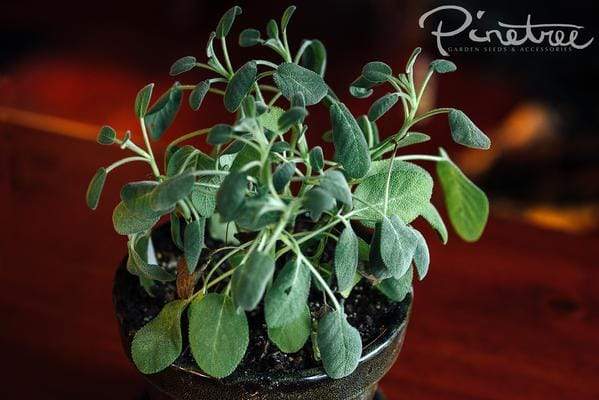
Sage, whose Latin name means "to be in good health", has a warm, fragrant flavor that complements pork, lamb, and other meats, as well as stuffing. Be sure to keep sage regularly watered, and prune heavily to encourage growth. Sage plants should be replaced every 4-5 years to ensure the best quality herbs for your cooking.
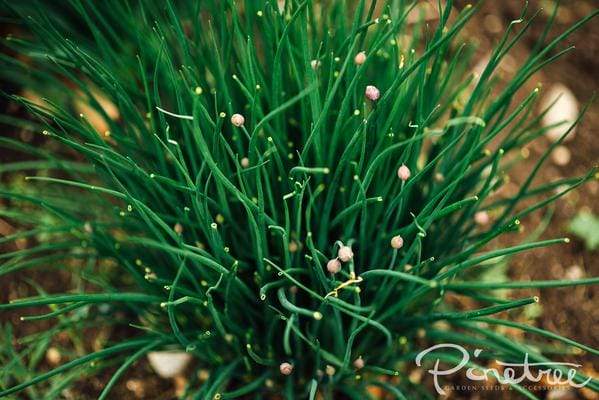
Chives, whose name derives from the Latin word for onion, have a mild onion flavor that works well in quesadillas, baked potatoes, and other dishes without heavy flavors to overwhelm it. When cooking with chives, add them in at the very end, as heat destroys their delicate flavor. Chives require lots of sun and fertile, moist soil. Chives are self-seeding, so remove the flowers to prevent your plant from dropping seeds.
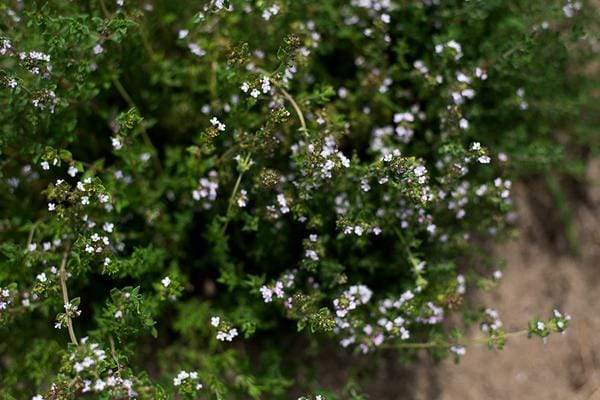
Thyme, whose name is said to derive from the Greek work for "courage", has a strong clover flavor that pairs well with pork, lamb, duck, cajun cooking, and other herbs. The French variety is most popular in cooking. Water and trim your thyme plant regularly.
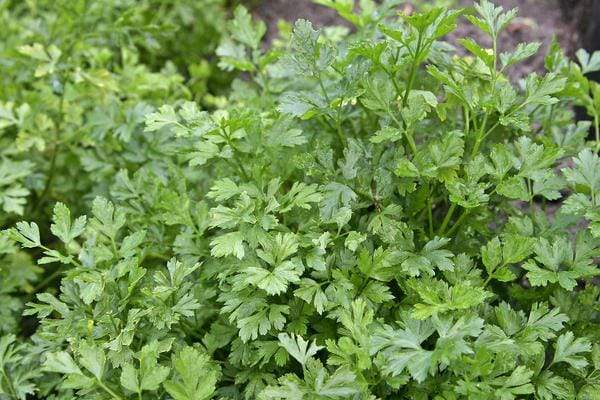
Parsley is a vitamin rich herb most often used as a garnish. It has a mild, grassy flavor that complements lamb, steak, fish, chicken, and many vegetables. Flat leaf parsley is the best for cooking, as it tolerates heat and holds its flavor better than it's curly-leafed relative. Harvest leaves when the stems have three defined leaf segments; cut from the outer portions of the plant and leave the inner branches. Parsley likes a lot of sun, and fertile, moist soil.


2 of the hardest herbs to find and apparently grow are Marjoram and Tarragon…. I had seeds for them this past spring but after the 4th failed planting and the unavailability of live plantings of these I really could use some help. I’m aware Marjorum is an herb many American cooks are no longer familiar with, However for those of us that are .. It’s a near Herculean task to find them. Can you HELP..
Excited to take look at catalog
HI Carol! You can request a catalog from our homepage or using the link here: https://www.superseeds.com/pages/catalog-request-form
A friend brought your catalog to our garden meeting. Looked very interesting. I want my own catalog, so I can order some seeds for spring.
HI Bob! We are happy to help! Can you tell me a little more about what went wrong? Did you get any germination? What is your set up? Feel free to reply here or contact us directly at hello@superseeds.com or 207-926-3400.